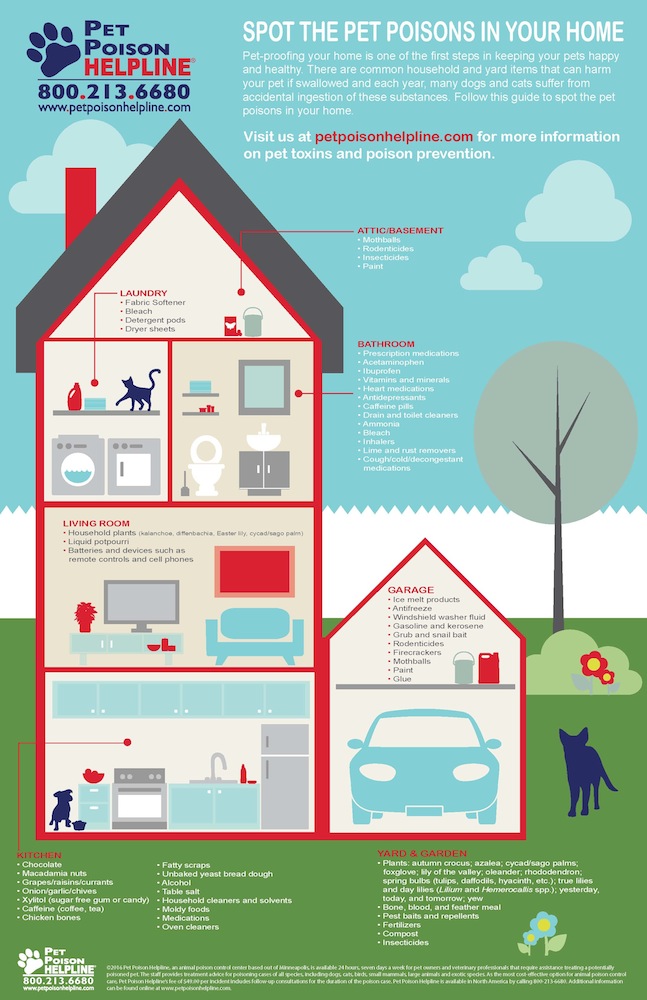I read a sad story recently. Two dogs were accidentally killed in Lincoln, Maine when they ate some bread sprinkled with a chemical called Lannate. It appears that a local farmer may have been trying to get rid of some crows and his neighbor’s dogs got into the bread.
According to an article by BDN reporter Nick Sambides Jr., the neighbor was walking her “dogs without a leash on the border of the farm field on April 23 when the dogs ran ahead and ate pieces of bread. The dogs, she said, immediately began foaming at the mouth and staggering. Both died shortly thereafter,
The deaths are considered an accident — you can read all the details in Nick’s article. It made me think about how lots of people, not just farmers, use pesticides to get rid of all sorts of pests. They use them outside and inside. They even put pesticides on their pets to protect them against fleas and ticks.
Anytime you use a pesticide you need to consider animals that might be in or near the vicinity. The chemicals all have the potential to hurt, sometimes kill, animals (and people) if they aren’t used properly.
Lannate is a brand name for a broad spectrum insecticide called Methomyl. It’s highly toxic to all kinds of creatures, including humans. Nowadays, pesticides tend to be more specific. Something that might kill fleas, for instance, won’t be toxic to dogs or cats (when used properly, but more on that in a moment.)

werner22brigitte / Pixabay
Most common pet poisonings
Dr. Thomas Netland, who owns Cumberland Animal Clinic in Cumberland Center, Maine, says broad-spectrum pesticides are not used as much as they once were, so he doesn’t see many poisonings from them. But he still gets some. “When you get into chemicals and pesticides like that,” he says, “the ones we still run into the most frequently are the rodenticides — rat and mice poisons. They tend to cause bleeding disorders.”
Even little rat and mice traps can cause a problem. Use them if you must, but make sure your pets can’t get access to them. “They vary,” says Dr. Netland. “Some are much more toxic than others, but it’s a pretty common poisoning that we see.”
The second most common poisoning is flea and tick medicine that is used on the wrong animal. “Using a flea and tick medicine on a cat that’s meant for a dog. That’s a fairly common scenario that can really have some pretty serious consequences,” he says. “Cats are not small dogs and some of the pesticides that are very safe for dogs are quite toxic for cats. It’s never ok to use a dog flea and tick product on a cat.”
The third type of poisoning that Dr. Netland often sees does not fall into the pesticide category. It’s pets eating drugs meant for humans, in particular, painkillers.
Two more things he would add to the list:
- Chocolate. It’s poison for dogs
- Antifreeze. Apparently, it’s tasty. Fortunately, he doesn’t see many cases of antifreeze poisonings anymore.
Veterinarians are more likely to see poisonings in dogs because dogs will eat just about anything. “Cats are less likely to be poisoned in that way,” says Dr. Netland, “because they tend to be more fastidious about what they eat. The big ones for cats would be people applying insecticides meant for dogs. The second one for cats is stuff they may walk in because they groom and clean themselves. If they have something on their feet they often will lick it off.”
Pet Poison Helpline created this infographic to help make people aware of common household and yard items that are potentially poisonous.
What to do if your pet gets poisoned
Symptoms of poisoning will depend on what kind of poison the animal swallowed. According to petMD they include:
- Generalized lethargy
- Malaise
- Weakness
- Vomiting
- Diarrhea
- Drooling
- Nausea
- Agitation
- Excessive sedation
- Tremors
- Twitching
- Seizures
- Coma
If you suspect your pet has been poisoned, don’t wait for symptoms.The sooner you can get in touch with a vet, the better. Call for help immediately.
The first thing you should do if you suspect your pet has been poisoned is to call your vet, an emergency animal clinic or a pet poison hotline. The ASPCA has a 24-hour hotline: 1-888-426-4435 ($65 fee). The Pet Poison Helpline is also available 24/7: 855-764-7661 ($49 fee).
Try to move your pet away from the poison, but do it safely. It may also be harmful to humans. Unless the vet tells you to, don’t try to make your pet vomit because sometimes it can make things worse.

Counselling / Pixabay
One more thing about prevention
You can’t be watching your pets every single minute, but Dr. Netland says supervision is a good thing — especially with dogs. If they go out unleashed, it’s important to train them to come when you call. It could save your dog’s life. “People may say their dogs are under voice command and they’re really not,” he explains. “Maybe they would normally come if the owner calls them but if they see something that is very tasty or another pet or something they may not respond to the owner’s voice. If you truly have a dog that you can call and they’ll come in spite of temptations, then that’s one thing. But if you have a dog that’s going to just run off, you have to be aware that they can get into trouble.”


Hi Diane,
We just had an incident with our 19 pound dog…that helped herself to three one-cup bags of homemade snack mix (chex mix, raisins, cashews, M&Ms, butterscotch chips, dried cranberries) destined for an intermission snack sale at a community concert. The carrying bag that contained the snacks was left on a high serving table, supposedly out of reach. (?) When we arrived home,the entire bag was on the floor and there were 3 plastic bags and 3 yellow ribbons on the floor….empty! About 15 bags of mix were still in tact. We called the Emergency Animal Hospital immediately and they said to bring her right in….that it was the Raisins and the chocolate M&M’s in the mix that they were worried about. We guesstimated that she had probably eaten 1/3 cup of each. They gave her Ipecac for dogs and then kept her for 48 hours on continuous IV’s and did lab values for kidney damage. And then more tests outpatient three days later. Thankfully, every thing was OK and all tests came back negative. $1100 later plus her outpatient costs, we have healthy puppy again. The veterinarian said that they were most concerned about the raisins. Dog owners beware….grapes/raisins are an expensive and dangerous snack for dogs!
I can’t get over the bill, but I’m so glad she’s ok Dean.
Thanks for posting this, Diane — excellent information for all pet parents. That story from Lincoln is heartbreaking.
Another substance to keep an eye out for is xylitol, a natural reduced-calorie sweetener which has become increasingly popular in a variety of food products, and it can also be found in certain toothpastes, chewing gums, and mouthwashes, or in bulk form as a sugar substitute. Apparently it can be deadly to canines.
Cat parents who have house plants should go online and check to see if any of their plants are poisonous to cats. I hang my plants, rather than put them on tables or shelves, to prevent my cats from chewing on them.
I also wonder about laundry detergent and dishwasher detergent “pods” which have become hugely popular in recent years. I’ve heard a lot of stories about toddlers getting sick from them (because they’re colorful and look like candy); considering that some dogs will eat things as unappetizing as tinfoil and remote controls, I wouldn’t be surprised if there have been incidents with pods as well.
Thank you so much Adrian for all that great advice. I’m to ask the vet if he’s seen any pod poisonings.
I didn’t read about any remedies except to take the pet to the vet and that’s common sense so no this wasn’t helpful at all